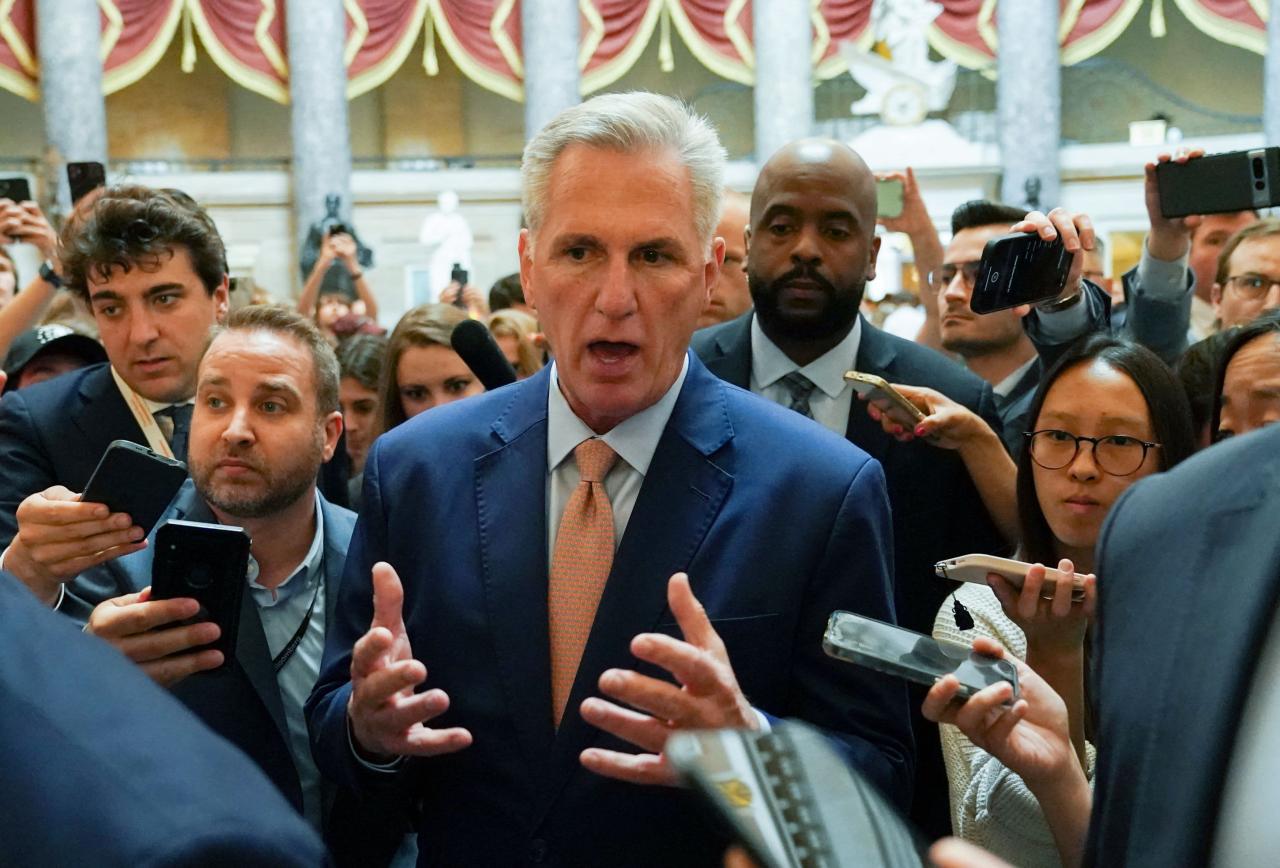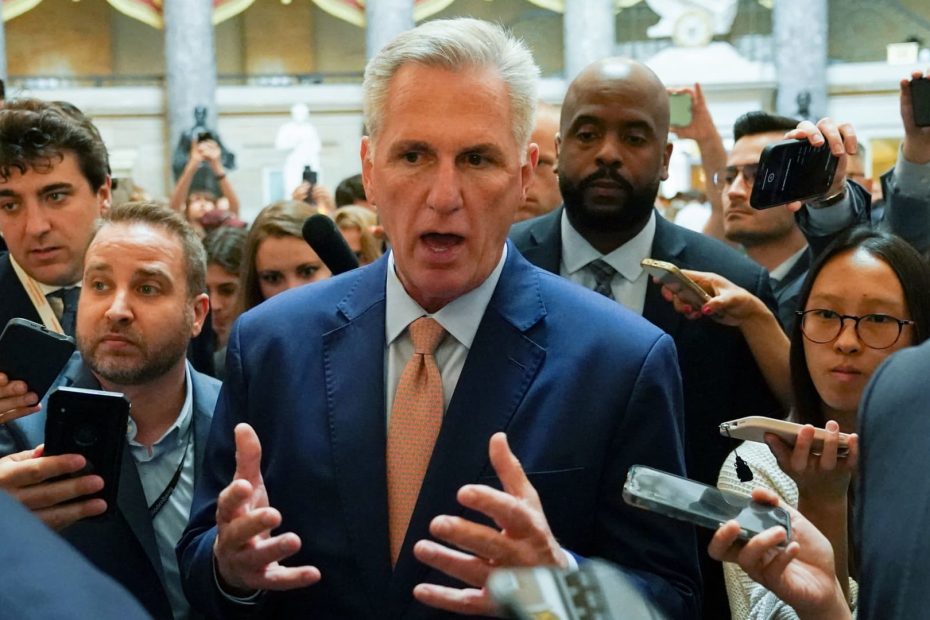Republicans speak out against U.S. debt-ceiling deal
A bipartisan agreement to raise the United States’ $31.4 trillion debt ceiling could face opposition from hard-right Republican lawmakers as the package moves through Congress ahead of the country running out of money next week. The 99-page bill would suspend the debt limit through Jan. 1, 2025 and cap some government spending over the next two years. A crucial first test will come on Tuesday when the House Rules Committee takes up the bill before a vote in the full House. Though the package is expected to clear Congress, some Republicans and progressive Democrats are not supportive of the measure.
FAQs:
What is the debt ceiling?
The debt ceiling is a limit on the amount of money the US government can borrow to pay its bills.
What happens if the US hits the debt ceiling?
If the US does not raise the debt ceiling, it could default on its financial obligations, which could have severe consequences for the economy, global markets, and US credit ratings.
Why are some Republicans opposing the bill?
Some Republicans believe that the spending cuts secured by the bipartisan agreement could weigh on US growth. They argue that steep spending cuts are necessary to curb the growth of the national debt, which at $31.4 trillion is roughly equal to the annual output of the economy.
Why are some progressive Democrats not supporting the bill?
Some progressive Democrats are concerned about changes to environmental rules and work requirements for food aid programs for poor Americans. They also believe that the bill does not do enough to address fast-growing programs like health and retirement costs.
Will the bill pass?
Although it is expected to clear Congress, there may be some opposition from hard-right Republicans and progressive Democrats. The package is crucial to ensuring the US does not run out of money to pay its bills, which the Treasury Department says will happen on June 5.

U.S. debt-ceiling deal criticized by Republicans
A group of hard-right Republican lawmakers have announced their opposition to a deal to increase the United States’ debt ceiling, signaling that the bipartisan agreement may hit obstacles in Congress before the country runs out of money next week. Although expected, the move illustrates the challenges facing Democratic President Joe Biden and top congressional Republican Kevin McCarthy to win approval in both the Republican-led House and Democrat-controlled Senate. Republican Representative Dusty Johnson expressed certainty that the deal will pass, while Governor Ron DeSantis criticized the package on Fox News, saying that it does not alter the country’s fiscal trajectory.
The 99-page bill would suspend the debt limit until January 1, 2025, allowing lawmakers to defer the politically sensitive issue until after the presidential election in November 2024. It would also place a cap on government spending for the next two years. The House Rules Committee is set to consider the bill on Tuesday, after which a vote will be taken in the full House. Though the panel typically leans towards House leadership, McCarthy was forced to include some conservatives who remain skeptical. Republican Mike Lee has already stated his opposition to the bill in the Senate, casting doubts on obtaining support from the chamber where any member has the power to delay action for days.
Republicans maintain that spending cuts are necessary to curb the growth of the national debt, which is to the tune of $31.4 trillion and roughly equal to the annual output of the economy. Interest payments on that debt are expected to occupy a large portion of the budget in the coming decades as the growing population increases health and retirement expenses, according to government projections. The bill’s modifications to environmental laws may have caused concern among progressive Democrats, including Representative Raul Grijalva, who called it “disturbing and profoundly disappointing.” The bill also includes cuts to funding for the tax-collecting Internal Revenue Service that should not endanger enforcement, according to White House officials. The initial reaction from financial markets has been optimistic, though investors are cautious about the potential impact of McCarthy’s spending cuts on US economic growth and volatility in the bond market. Military spending will increase over the next two years, while cuts would occur in lower-priority areas such as housing, border control, scientific research, and other domains.
